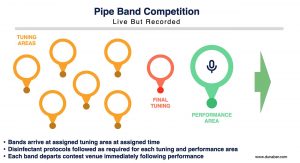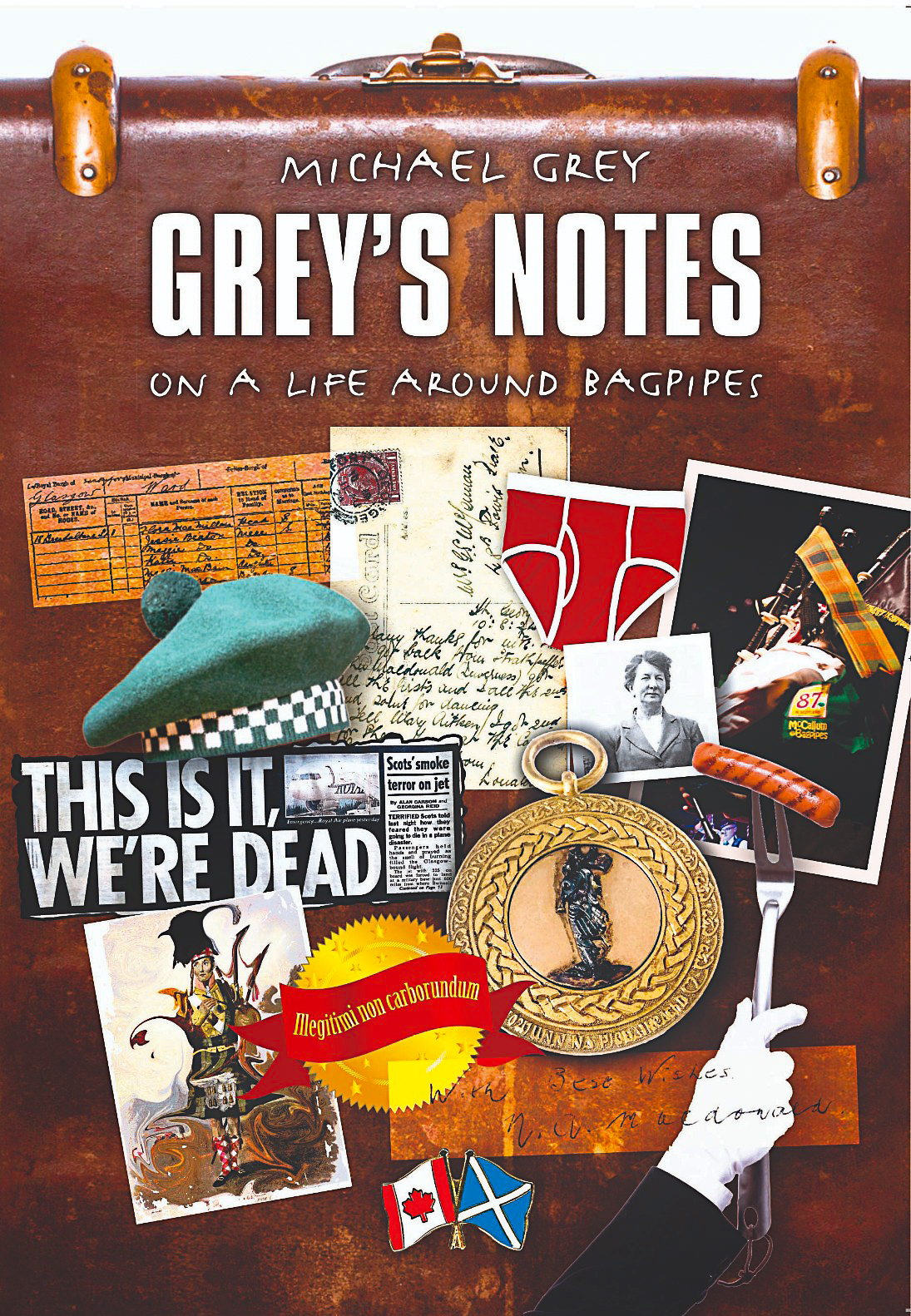The 2021 pipe band season: possible solutions
August 31, 2020 on 6:13 pm by Michael Grey | In News, Pipe Bands, Solo Piping, Tips | Comments Off on The 2021 pipe band season: possible solutionsNot too long ago Canada’s Chief Public Health Officer, Dr Teresa Tam offered up a sobering – if not depressing – update to Canadians:
“We’re planning, as a public health community, that we’re going to have to manage this pandemic certainly over the next year, but certainly it may be planning for the longer term on the next two to three years during which the vaccine may play a role. But we don’t know yet.”
It seems that – as much as we’d hope – there may not be a swift magic way out of the fog of our pandemic-lived lives.
I’ve been thinking for a while about competition possibilities for pipe bands (and soloists, too). Pre-recorded online activity is ok, maybe, for a brief locked-down moment in time but it does nothing to slake the thirst of the competition-loving piper and drummer. To create an event – a real event, a happening of importance and one where a paying audience is interested – any competitive online presentation must be live (or, at least, a recorded “one-off-only” performance; more on this later)
And from the look of things any hope we have of competing again will see us need to lean on technology – in a big way.
Assuming over the coming months that most areas of the world will have gone much further in “flattening the curve” – and, so, in places where pipe bands play there’s hope each band can soon come together, and, so, prepare for performance excellence.
If pipe bands can rehearse the stage is set for us to create a competitive framework that marries technology with cool green grass.
Chief Technology Officer
First, if they don’t have one already, every piping and pipe band organization anywhere needs a Chief Technology Officer. A designated role is needed in any organization to navigate tech solutions and be the tech points person. Call the post what you like but a subject matter expert needs to be in place to bring expertise and a clear head to the technology fixes critical to the health of the organization and its mission (e.g. “ … to promote and encourage the culture and advancement of pipe band music internationally …”).
Resist the temptation to give the job to Big Philomena McLatchy [nod to Janey Godley] or anyone else close at hand who is known to be a dab hand at computer-y stuff. Engage a professional – even if on an ad hoc (i.e. affordable) basis. In my experience working in corporate tech environments it seems to me that often what is imagined as a complex problem is, in truth, easily solved by a technology fix. And Big Philomena never easily fixed any (tech) problem I experienced.
Obstacles
In running a pipe band contest in our current environment we have challenges – obstacles, really – that might include: travel restrictions, physical distancing rules and resource limitations (low cash flow, income loss, general economic messiness). Organizational membership, too, might be in a disengaged way, unmotivated and suffering a disconnect from their instrument and the music it makes – especially in a band.
All these present a hefty collection of challenges, there’s no doubt. It’s unlikely any attempt at solving these problems can be anywhere close to perfect and so any framework will likely have its own issues. “It is common sense to take a method and try it. If it fails, admit it frankly and try another. But above all, try something.” (FDR)

1. Contest in a Box: LBR (live but recorded)
At a high level here’s what I propose:
- Develop a simple package of protocols and guidelines that would allow organizers anywhere to present the live competitive performances of pipe bands for broadcast.
- Protocols would include: size of green space and/or marquee that would serve as the performance place (size and character of the performance area); the number of tuning places; administration of local public health policies and procedures.
- There’d be no waiting around: each band would appear at the initial tuning location as stated by organizers.
- Bands would follow the simple arrangement of designated band tuning spaces laid out by organizers.
- Bands would each perform in the prescribed formation (likely an appropriate physically-distanced crescent).
- A standard arrangement of basic recording equipment would be prescribed with a stage plot for mic placement. With the heavy compression of sound processed online I’m not sure of the expense needed here. An example of a decision deferred to the technology officer. Suggest each location requires consistency to support fairness.
- While the contest is recorded – and later broadcast on a tech platform that makes most sense (i.e. youtube, facebook, vimeo) – bands would have one chance only at presenting their performance – missed attacks and trailing drones at the ready.
- As happens today, a designated on-the-ground contest manager / referee / steward is in place at all times to ensure adherence of rules.
- Recordings from the “live” location would be collated and submitted to the contest organizer.
- Judging would occur by accredited individuals who attest to having access to a standard of listening gear in line with that prescribed by the the governing organization (e.g. 50 watt speakers). Remember, don’t ask Big Philomena for tech advice.
This approach would allow bands from anywhere in the country – or the world – to match skills in a virtual contest. Refereed contest set-ups might be arranged anywhere. Imagine, a contest with bands submiting their sets for an event, say, managed by the RSPBA Northern Ireland with entrants from satellite locations that might include Toronto, Glasgow, Wellington, Melbourne, New York City or Rennes. The list of possible places is near-limitless.
2. Contest in a Box: LBS (live but streamed)
This arrangement is similar to that just outlined. The difference here is that rather than recording one-off performances for after-assessment by judges the contest is streamed live and judged live. Where in the first example an organizer will have days to collate recorded performances, LBS presents a bigger technology and logistics challenge.
Still, this is all completely do-able with careful consideration of inherent sticking points including:
- Playing order/diverse time zones and
- Timing and schedule management and platform reliability. The technology at each satellite location needs to be stable and reliable.
Both offer the potential to bring a little excitement back to the pipe band world – and opportunities for organizations to make a little money in advertising.
And, what – or who – is to stop us from applying the same template to presenting solo contests?
Definitely not Big Philomena McLatchy.
M.
No Comments yet
Sorry, the comment form is closed at this time.
Dunaber is using WordPress customized and designed by Yoann Le Goff from A Eneb Productions.
 Entries and comments
feeds.
Valid XHTML and CSS.
Entries and comments
feeds.
Valid XHTML and CSS.


